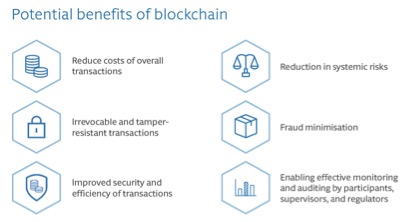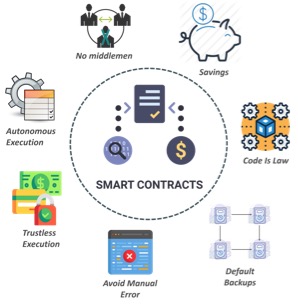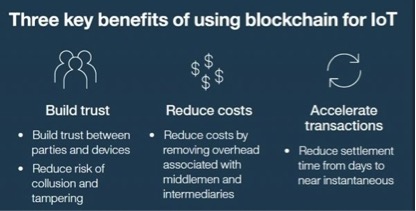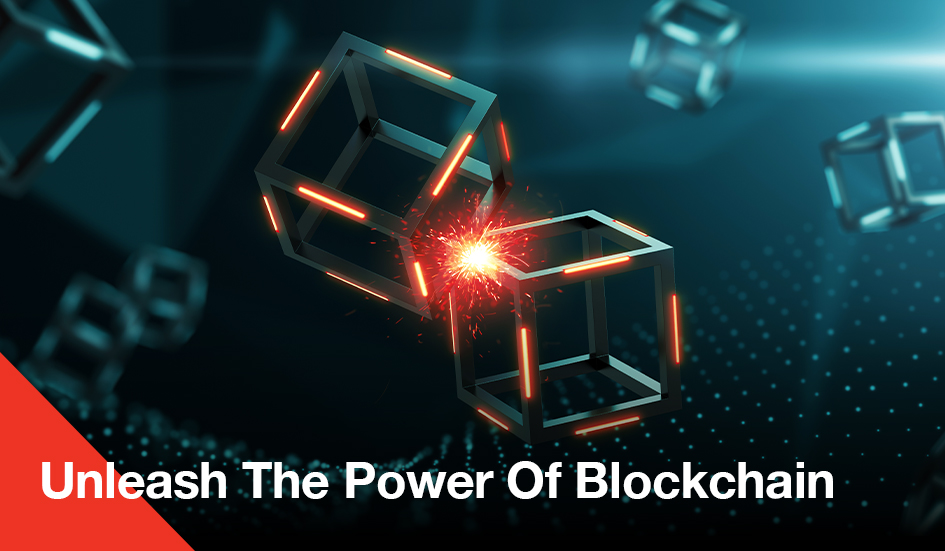Blockchain technology has completed its transition from geek tech to adoption. Blockchain applications in business are transforming the way data is transmitted, accessed and used. In this article, we delve into blockchain applications that help transform enterprises in a wide variety of industries. Enterprises are investing in blockchain technology to make all transactions more authentic, transparent, and trustworthy.
The reason why business executives are excited about the blockchain is for its following three distinctive features:

· Decentralization: None of the data in the blockchain is owned by one centralized entity. All the nodes in the blockchain’s network hold the data.
· Immutability: After data has been entered in the blockchain, it cannot be tampered with. This happens because of cryptographic hash functions.
· Transparency: All the nodes of the network can see all the data that has been entered into the blockchain.
Specific Types of Blockchain Applications in Businesses
The blockchain gives users the ability to create value and authenticates digital information. Here are some specific types of blockchain applications that are developed for and how that might change your business.
1)Asset Management
The security and resiliency of the transactional data are imperative in asset management. Blockchain technology allows businesses to create a system consisting of the technology and processes of third-party providers and internal systems, thereby revolving around a single source of truth for the asset management activities. As transactions performed on a blockchain are immutable, it creates an accurate, unchangeable record for asset managers to use and verify the transactions. Asset management organizations and financial institutions use these records to analyze their performance and risks as part of their planning cycles. Asset managers can share sensitive data such as asset history, with relevant providers and partners in a secure way.
The blockchain ledger also reduces error by encrypting the records and simplifies the process as well as cancel the need for intermediaries. Blockchain technology simplifies all processes and actions in managing assets, namely portfolio management, trading and transaction of cryptocurrencies.
2) Insurance claims processing
Claims processing can be a frustrating procedure and insurance processors wade through fragmented data sources. The blockchain provides a system for risk-free management and transparency. Through its use of public ledger, blockchain can potentially eliminate suspicious transactions by logging each transaction. Through its decentralized digital repository, it can verify the authenticity of customers, policies and transactions by providing historical records.
Blockchain can also handle the increase in third-party transactions and claims made through personal devices. Blockchain helps slash costs through automated verification of claims data from third parties. Insurance companies can swiftly check past claims transactions registered on blockchain. This has helped fostered higher degrees of trust and loyalty between insurers and customers.
3) Cross-border payments
The global payments sector is error-prone and time-consuming. It takes several days if not longer for money to cross the world. Cross-border payments supported by blockchain provide significant advantages to businesses and consumers. Blockchain-based payments are cost-effective, almost immediate, secure and transparent. Blockchain payments are completed in close to real time – in seconds rather than days. Instead of paying transfer fees to multiple parties, companies using blockchain only need to pay a single nominal fee or nothing at all. Cost savings will be substantial for organizations that make frequent international transactions.
Blockchain also eliminates the risk of discrepancies in record keeping. As a decentralized ledger, it holds an irreversible record of every transaction and distributes it for all authorized users to see. The ledger is maintained and updated communally by a group of connected computers, and all parties have an identical copy of the ledger. All transaction records are secured by cryptography, tied to previous transactions and distributed among participants in a ledger.
4) Smart contracts
Blockchain technology can power smart contracts to fulfill transactions. It is wise to perform due diligence on any company your company is considering doing business with. A smart contract is an automated, self-fulfilling contract between two parties. Payment is not released from one party to the other until both parties have fulfilled their terms of the contract. Once this is done, payment is released automatically.

Smart contracts get rid of third parties overseeing the creation and completion of contracts. Parties can use pre-drafted contracts that can be modified and shared in one ledger.
5) Supply chain management
Blockchain technology also benefits supply chain management by providing a way to trace goods while being cost-effective. Enterprises can verify with certainty where items and goods are, thereby eliminating guesswork and inefficiencies.
Blockchain technology have an impact on the supply chain process. It has recorded the quantity and transfer of products as they change hands between supply chain nodes. It has helped track change orders, buy orders, shipment notifications, trade documents and receipts from the blockchain ledger. The blockchain also allows sharing information about processing or manufacturing process, delivery, assembly and maintenance of products with vendors and suppliers transparently.
6) Digital Identity
The traditional identity systems of today are fragmented, insecure, and exclusive. Blockchain enables more secure management and storage of digital identities by providing unified and tamper-proof infrastructure with key benefits to enterprises, users, and Internet of Things (IoT) management systems
The importance of digital identity is prominent than ever for some reasons. Without a proper ID, getting access to education, banking, or health is difficult for users. There is still no global cooperation with IDs, so digital identity can enable a digital-based identification. Blockchain technology can help in tracking and managing digital identities. It eliminates the need for physical identification and replaces it with digital IDs. It offers solutions for many digital identity issues where identity can be uniquely authenticated in an immutable, irrefutable, and secure manner.
7) Blockchain’s Internet of Things applications (IoT)
Gartner predicts that 20.4 billion IoT-connected devices will be active by the end of 2020, with some estimates showing the IoT market will reach US$3 trillion annually by 2026. Blockchain-enabled IoT devices would operate faster and more securely for businesses. As the blockchain is decentralized, it can do what IoT exactly requires. Using blockchain in IoT can help businesses track billions of connected devices in the network.

Integrating the blockchain in IoT devices can also reduce the costs of installing and managing servers for an IoT network. Blockchain uses cryptographic algorithms which ensures the confidentiality and security of the data on the IoT network.
Meanwhile, smart IoT-enabled devices play a crucial role in our day-to-day lives. IoT blockchain enables the home security system to be managed remotely from the smartphone. The traditional centralized approach to exchange information generated by IoT devices lacks the security standards and ownership of information. Blockchain could elevate the smart home to the next level by solving security issues and removing centralized infrastructure. Sensitive user data such as biometrics, voice recognition, and facial recognition are stored on the blockchain for improved security. Once the data is saved on the blockchain, it cannot be modified, and access is only provided to the right person.
Blockchain technology becomes tidal wave of innovation
With deep expertise across various industries, NDN Group has leveraged the Proof-of-Capacity algorithm to build a decentralized open source platform – a scalable, environmentally friendly and adaptable blockchain solution. Practical blockchain applications are becoming more mainstream. As blockchain adoption spreads, it can become a driving force for solving business problems and transforming how we live and work every day.
Explore the blockchain world with us. Drop us a line at info@ndngroup.com to learn more about how our blockchain solutions fit your business needs.
